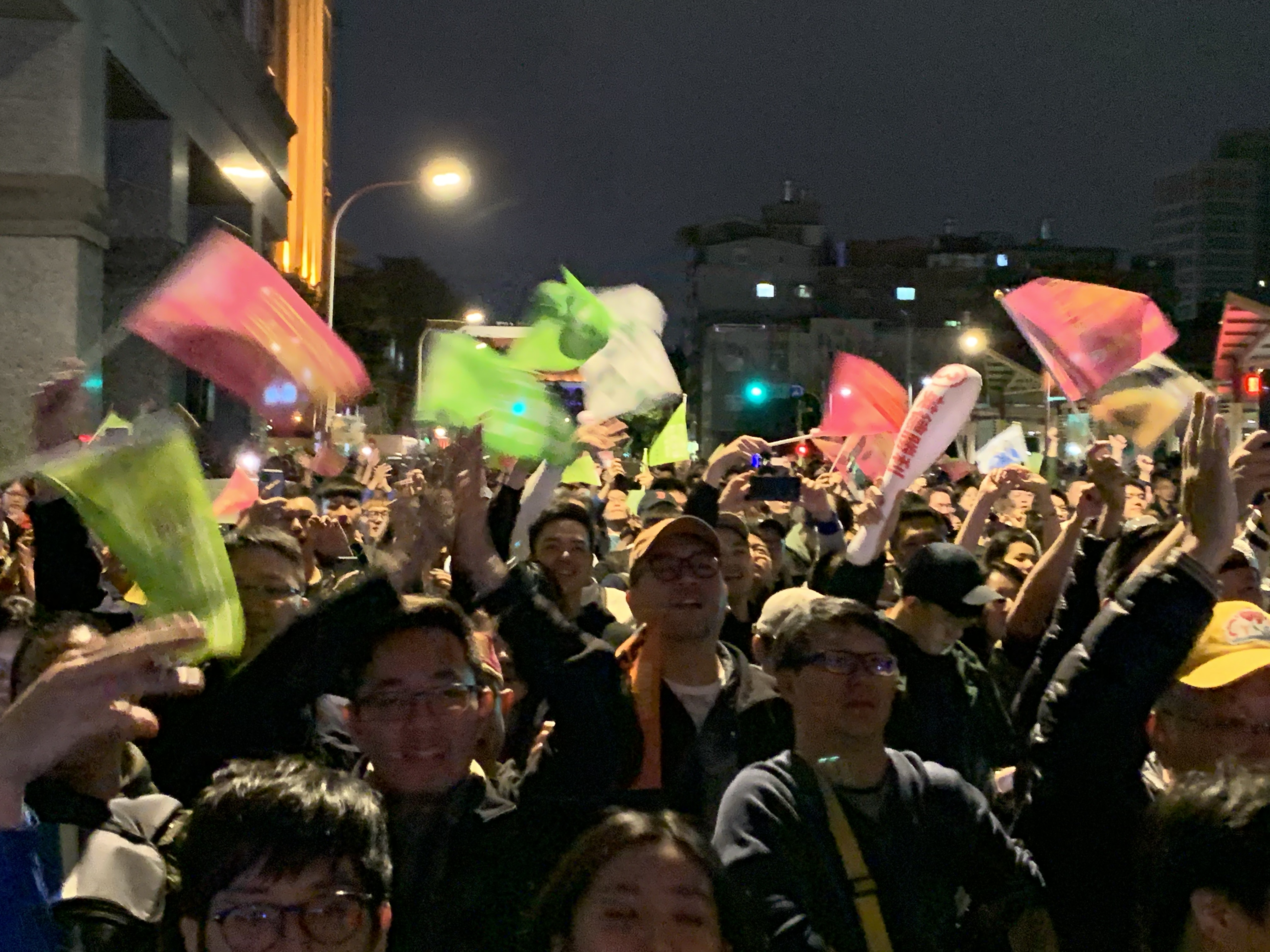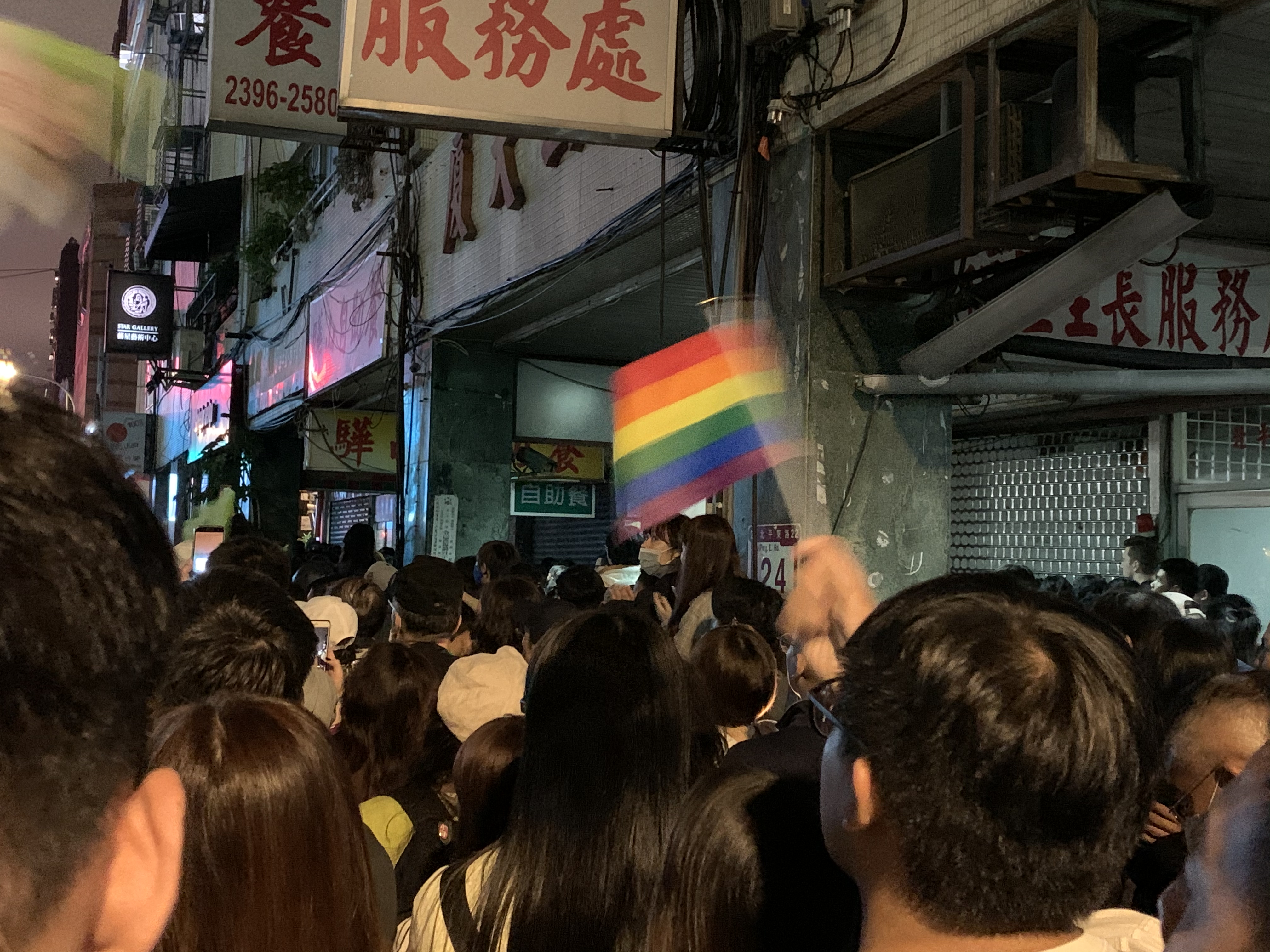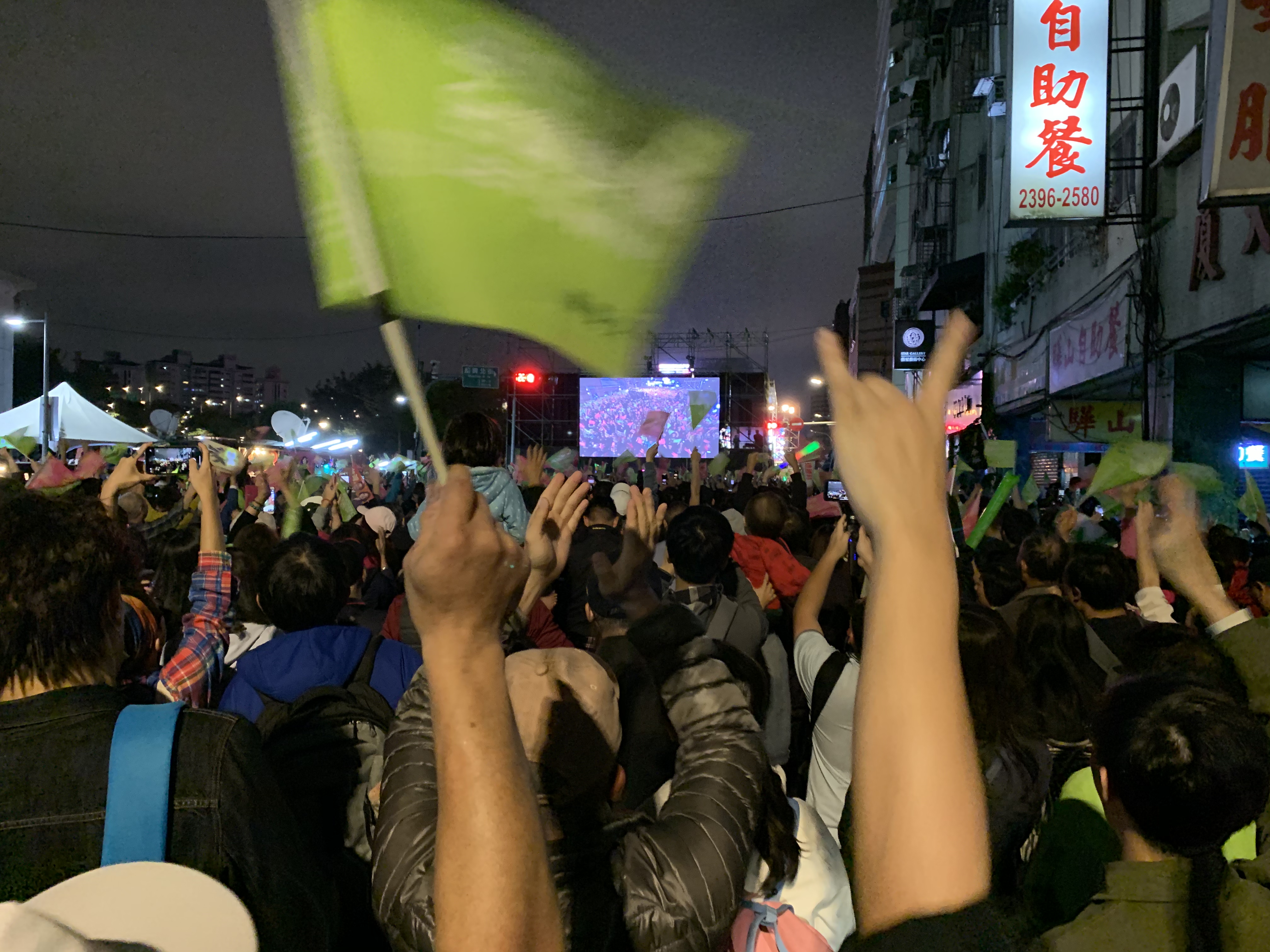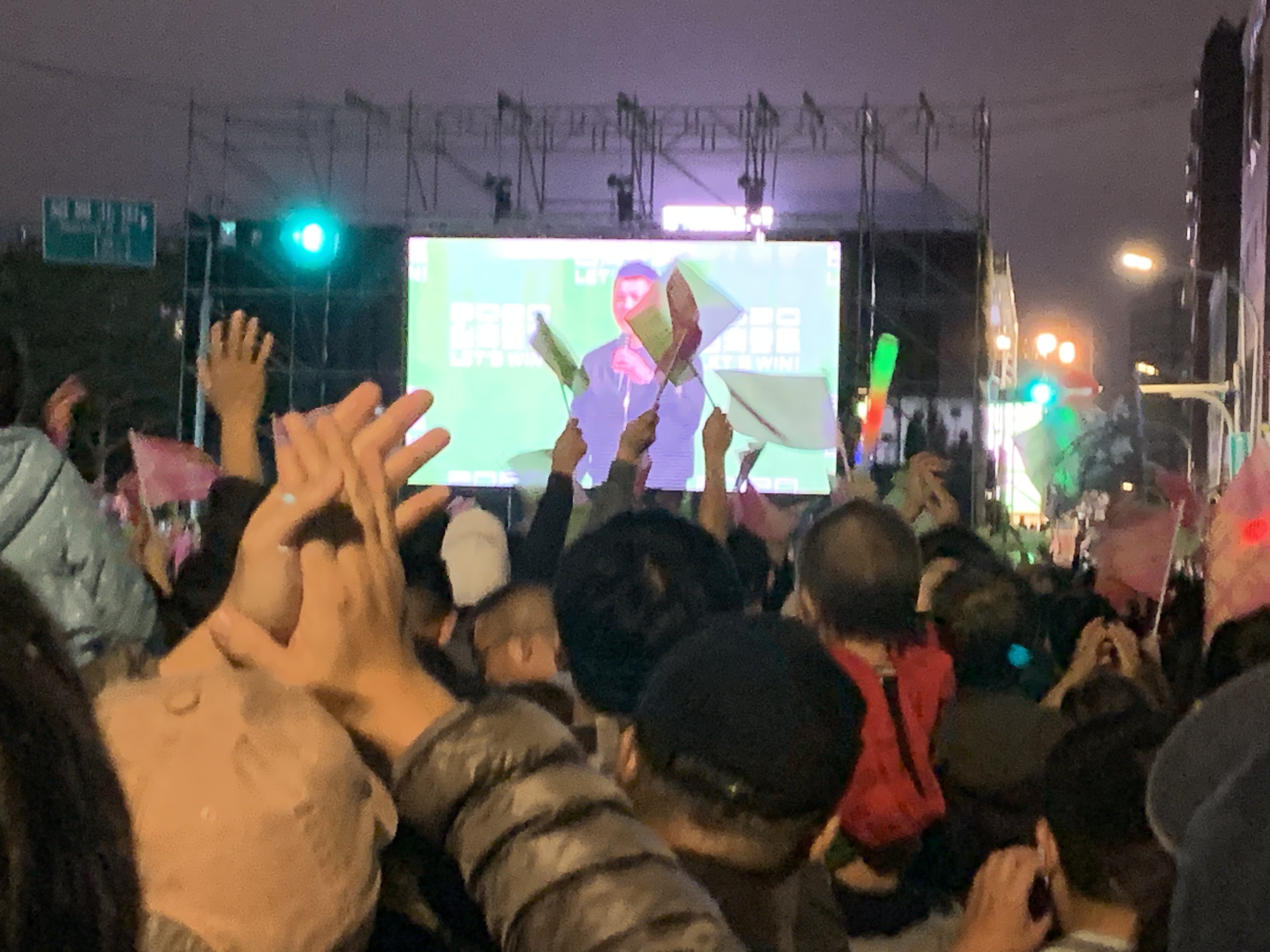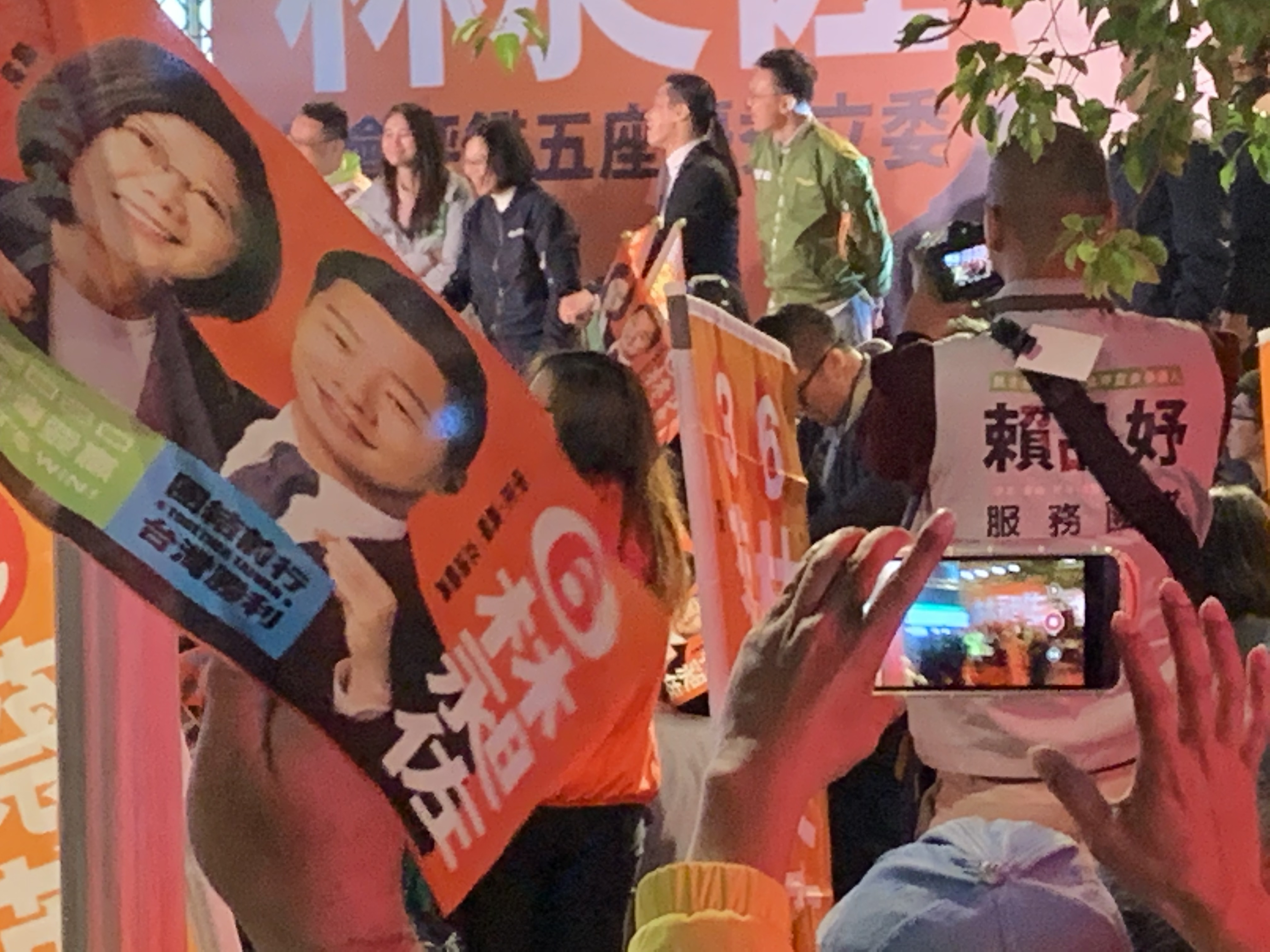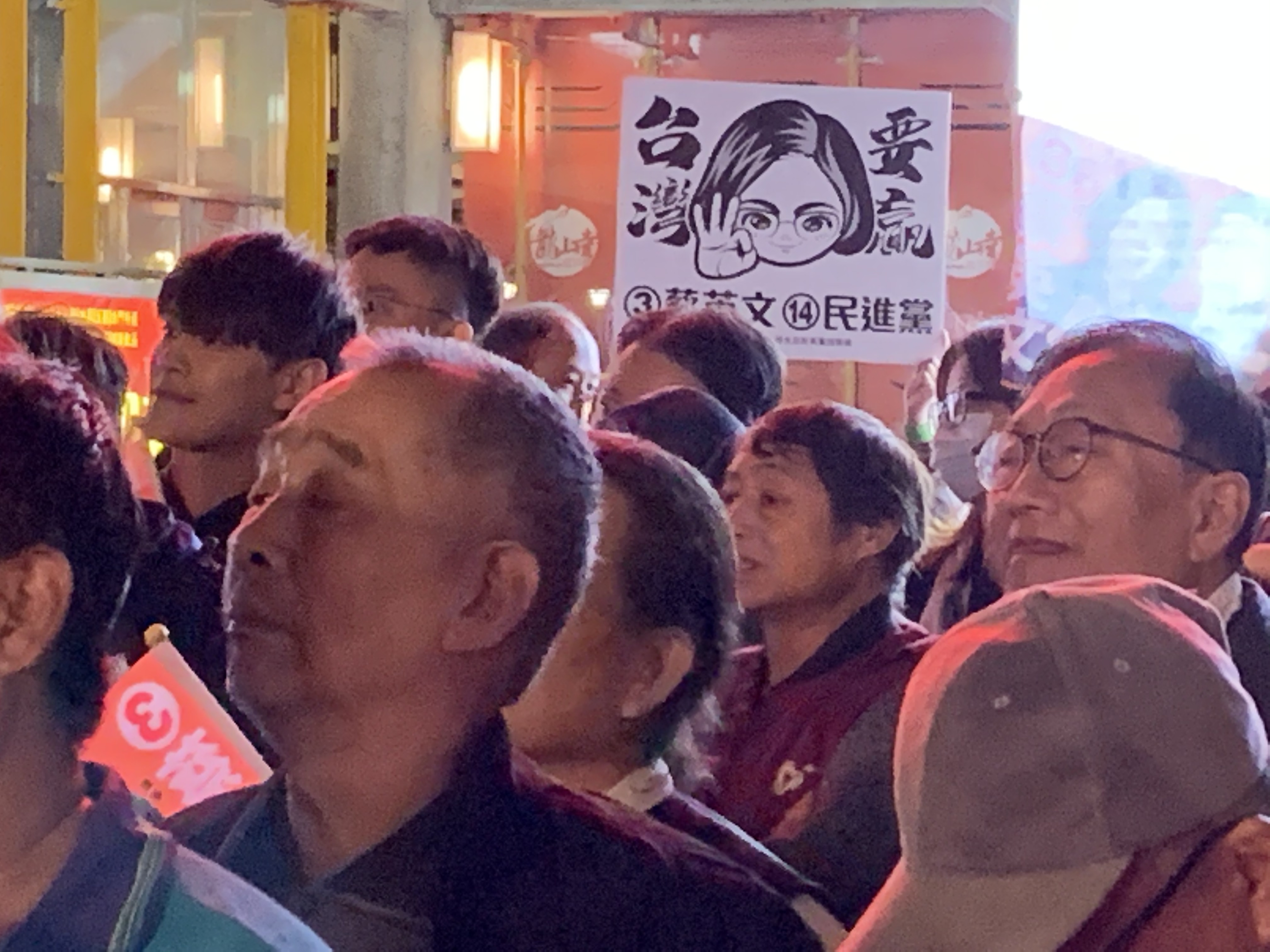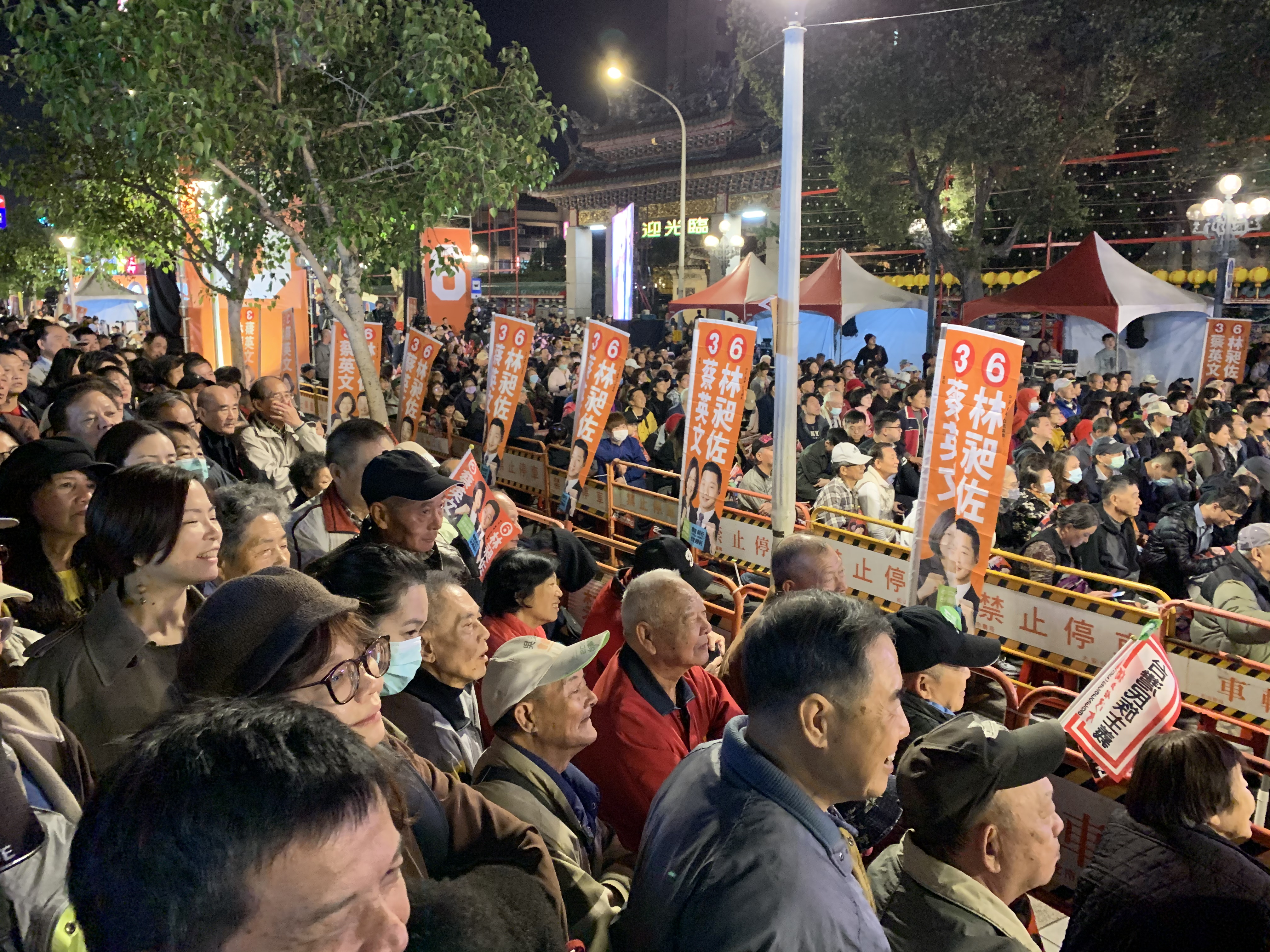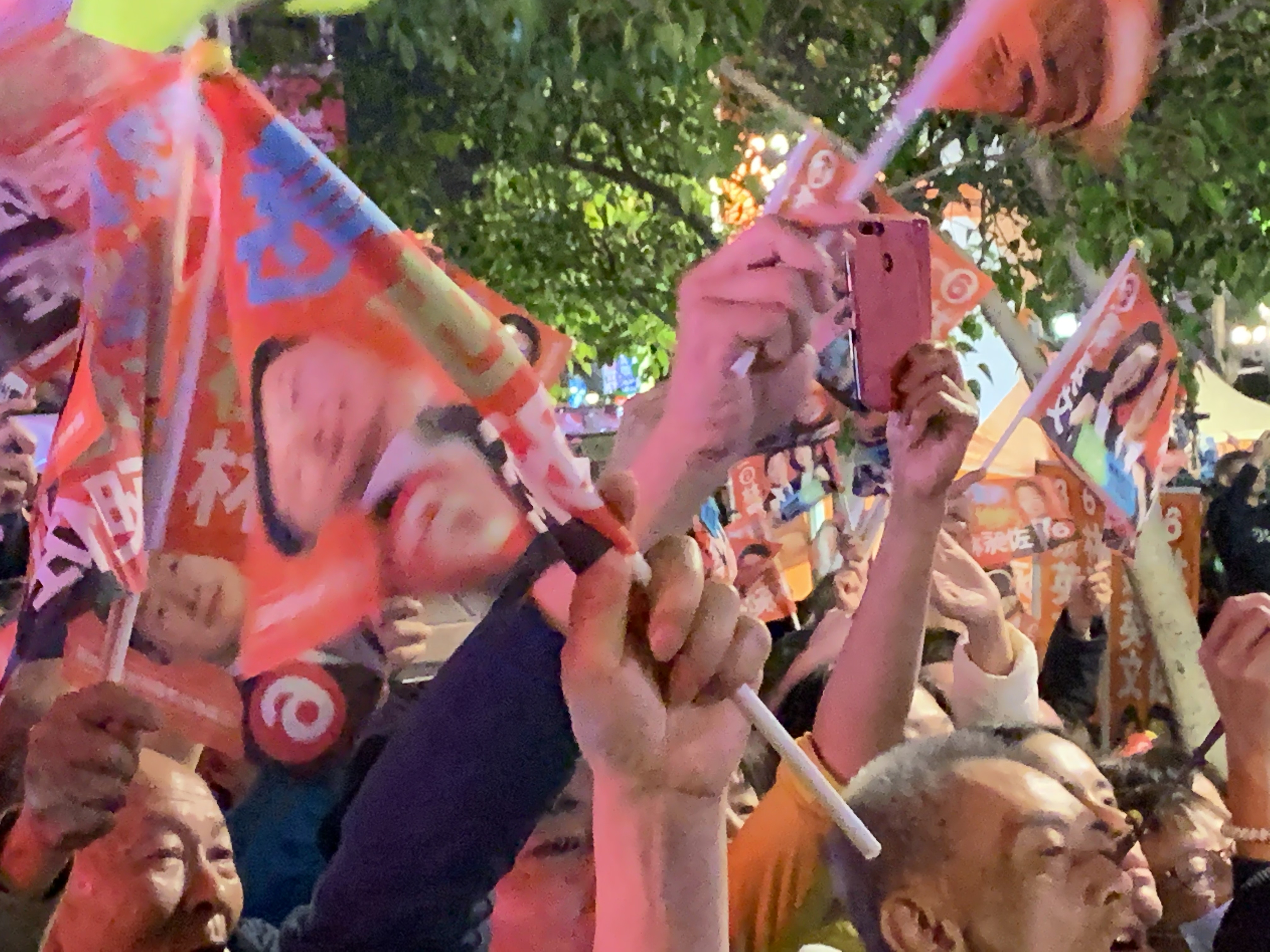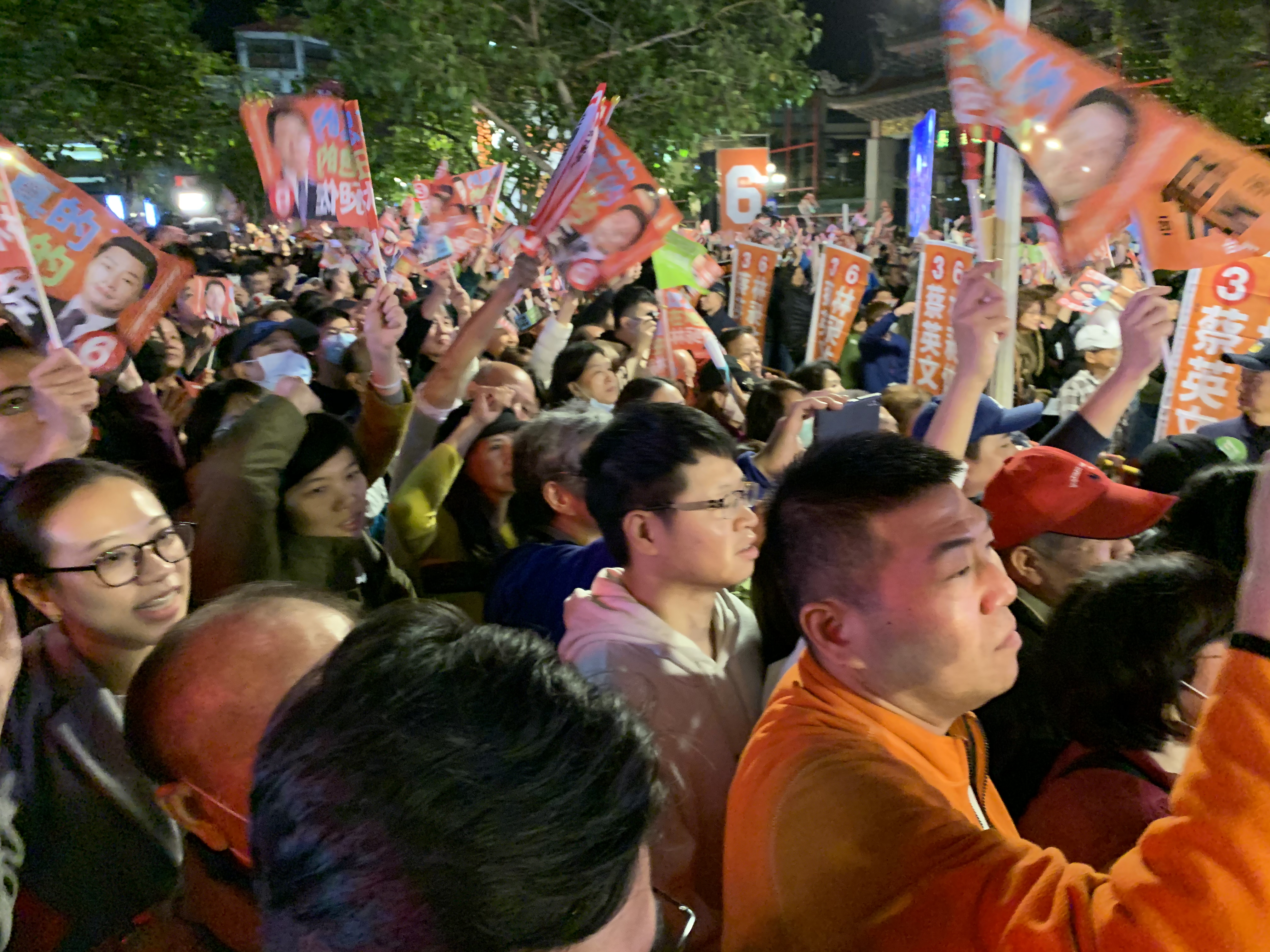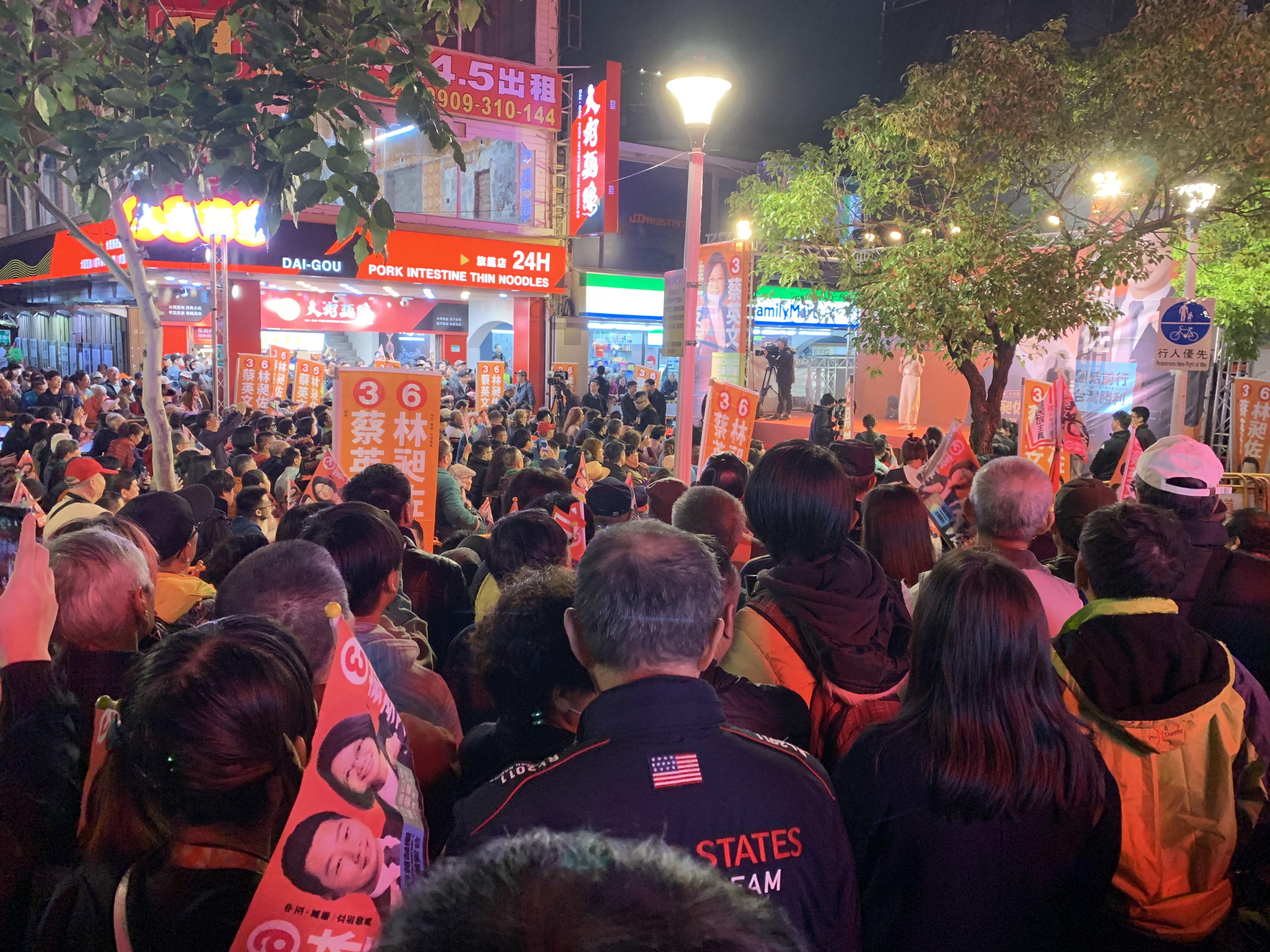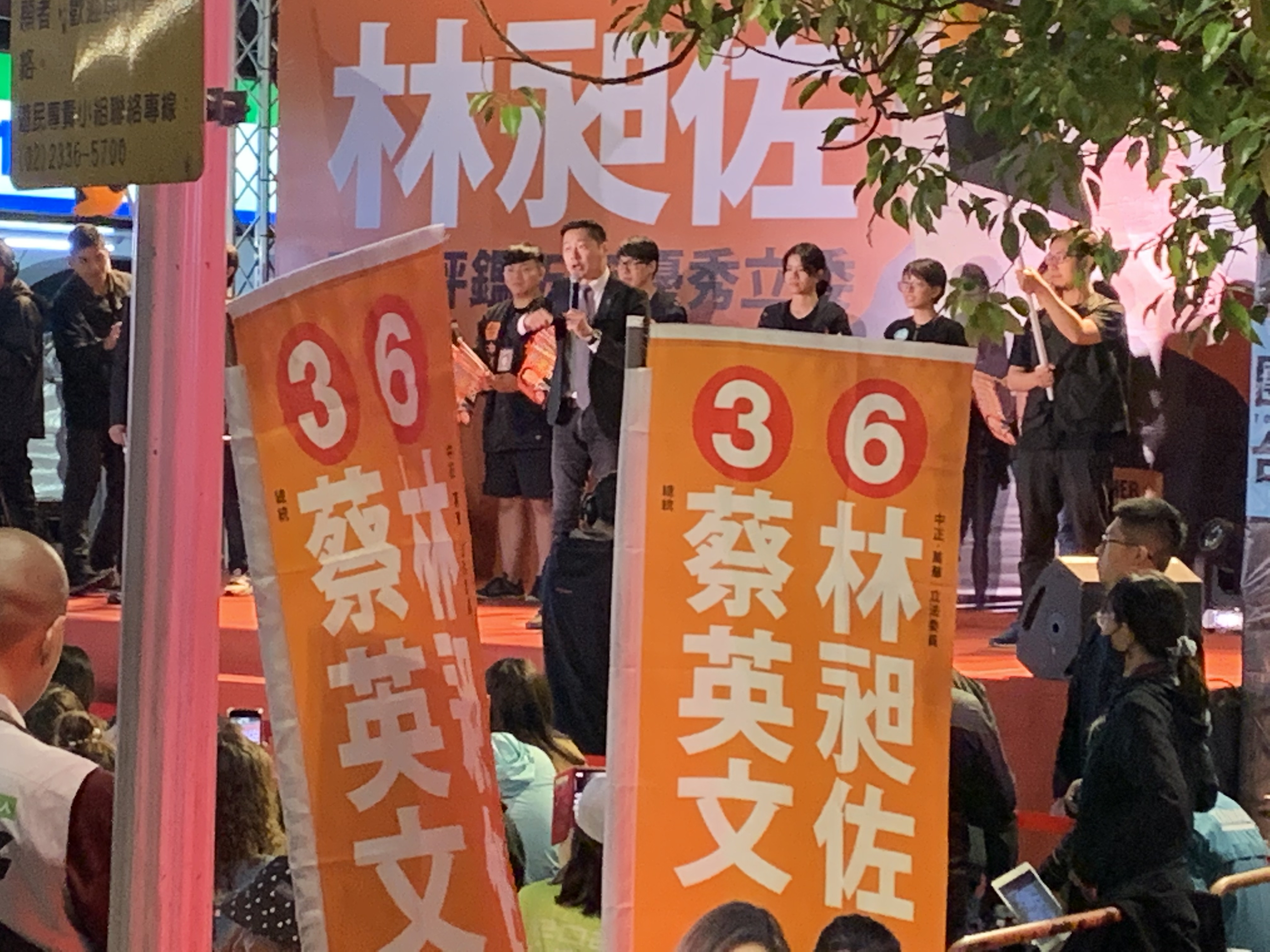
On the eve of the election I have no new analysis, no specific insights - really I’m just a massive ball of anxiety.
As my husband pointed out on Facebook, that’s because we all watched what happened with Trump and Brexit - especially Trump - and although Han is not Trump, he hits some of the same notes and it triggers something in our brain that terrifies us. Terrifying xenophobic populists have shown us around the world that they can get elected, but only Trump was not favored to win before he actually did. It doesn’t matter that this fear is probably unfounded - we’re not allowed to discuss polls at this point but we all know who is likely to be elected tomorrow. It’s something deep inside our lizard brains producing this anxiety...that things could go south, because they have before.
My Taiwanese friends are also nervous. It’s hard not to be, even when the odds are in our favor.
It probably will be closer than we think. Sure, we all know what the numbers say, but older folks vote in greater numbers and that could skew results in Han’s favor.
So I want to offer a few words of comfort, or at least try. As much to sooth my self as for you guys, my readers.
First, let’s remember that if the election that produced Trump had happened under Taiwan’s system, Clinton would have won. The system, in that sense, works in our favor.
Second, let’s remember that Clinton’s lead over Trump was more tenuous than...well, we’re not allowed to discuss the polls. Trump had a greater chance of winning even under the US’s jacked system than I think Han has in Taiwan.
Third, it’s astounding to me how Tsai has in fact managed to unite a large swath of the electorate against Han (oh yeah, Han helped to do that to himself as well, and various international events haven’t helped him). I have friends and acquaintances who skew blue or blue-ish, who happily voted for Ma. Some of them even grudgingly voted for Chu, knowing he’d lose. Every last one of them (with one exception) can’t stand Han, and many are switching to Tsai. Some are simply not voting. They may not stay green forever, and this is anecdotal evidence, but it’s a promising thing to observe. She hasn’t united everyone, but I’m amazed at how she’s turned her public relations machine into a mechanism that actually works. What’s more, I’ve met hardly any young people who’ve been turned on by Han, but plenty of older folk who still support Tsai. Han may win the Auntie vote, but he’s not going to get all of them, and he’s going to get far fewer of the youth than he needs.
I also have to remember that a lot of younger people are talking about how their conservative older relatives will vote. Again this is anecdotal, but the discussion seems to have more urgency and underlying it is a more direct, personal call to action. Watching Thursday’s Han rally solidified it: we’ll probably win but this won’t be an easy victory regardless of the numbers, and if we want to win, we’d better turn out in greater numbers. Han’s people may have thought that inflating the number of attendees for his rally (come on, there is no way 800,000 people showed up - we’re not stupid) would make him look good, but it probably had another effect too. That is, to remind his opponents that, as much as he seems like a joke, he isn’t one. Seeing all those ROC-flag-laden aunties on the MRT surely prodded some people on the fence about voting at all to hustle tomorrow.
In fact, reports indicate that Han has lost, not gained, momentum. It's hard to say given the polling blackout, but I don't think he's showing signs of pulling off an upset.
It doesn't hurt that Tsai has actual experience and qualifications, and achievements to her name, and Han has none. She has platforms, he has rabble-rousing. That may not necessarily matter to the average Chen, but it doesn't hurt. Plus, while older folks may buy the ROC rah-rah, most Taiwanese simply don't. I hope they realize now and not later that they do not want the Taiwan that Han is promising them; they want the one that Tsai is actively building.
I figure, if the older folks will turn out no matter what, higher turnout overall benefits Tsai, as it means younger voters are casting ballots. And it looks - just from public transport and what people are saying, plus a fine weather forecast - that the turnout will be solid.
Yes, it worries me that, despite all sorts of scandals doing Han real damage, from his luxury housing to his mistress to the Chinese spy case to the fact that Kaohsiungers just aren’t happy with him, he’s still not a joke. In response, there’s not a lot to throw at Tsai that actually sticks. They can say “the economy is bad” but it’s not. They can say she’s just another DPP chauvinist, but under her tenure the DPP has grown more diverse and inclusive, and shed a lot of the Hoklo chauvinism that characterized their earlier leadership. They can throw sexist attacks at her but I don’t think those will win over people who were already prepared to vote for her (although surely there are sexists who just can’t stand that she has the wrong genitals).
It also worries me that the KMT seems to be taking a social conservative polarization approach in the countryside, which a lot of liberal-but-blue Taiwan urbanites are unaware of (if they fully understood what was going on, some of them might turn away from the KMT). It’s a clear attempt to win over traditionally DPP voters who do value Taiwan’s sovereignty but can be angered by “scary gay people” and promises of a “better” economy (even though the economy, again, is not bad) into voting against their natural allegiance.
This is why it’s going to be closer than we think, and Han is no joke.
On the other end, though, the DPP has managed to put forward some popular candidates, a few of whom are giving headaches to KMT candidates who thought they were safe. The KMT’s own actions recently - not just the party list debacle but the Alex Tsai scandal - have blunted its efforts to pull off an upset. And Taiwan tends to give its presidents - even ones with low approval - 8 years, though the country hasn’t been democratic long enough for that to be assured. (And yes, I am aware that politicians with high approval ratings, such as Chen Shui-bian as Taipei mayor, have gone on to lose).
Speaking of Alex Tsai, nothing could make me happier than to watch the KMT’s absolutely hilarious amateur hour, as it attempted to tease the release of some last-minute surprise (probably what they believed would be a successful recanting by alleged Chinese spy and Australian asylum seeker Wang Li-qiang) only to have it blow up in their face spectacularly thanks to good reporting in the Australian media. Even KMT diehards I know quite literally spit when they hear Alex Tsai’s name. The diehard Han fans will still turn out for their cabbage man, but this may turn a few people away.
And speaking of China not helping its own cause, I have to remember that the Beijing establishment tried its damnedest to quash the Hong Kong protest spirit, but pro-China lawmakers were crushed. There is video evidence of them paying elderly protesters to vote. Just because China is trying to interfere doesn’t mean they’ll succeed.
But at the end of the day, while I am girding my loins in case I get kicked in the teeth again as I did with Trump, I do in fact believe that Tsai will win.
At least, I need to remind myself of this. I need to keep recanting these points, over and over, to stay calm.
You see, it’s not just another election where if the guy I don’t like wins, nothing too bad will happen. Considering the turn towards authoritarianism and populism that the world is taking, and China’s increasing threats and attempts to sabotage Taiwan’s democracy, I am not at all sure Taiwan, as the country I consider my home, will survive a Han administration intact. If it makes it through at all, it will be broken and tired, as the US is now.
I do believe this is sort of a “last chance” for the world. After Trump, Johnson, Bolsonaro, Duterte, Modi and more (there are a few in Europe...in fact, the whole world is reeling), Taiwan has a chance to stand up to a Trump-like populist and say “this needs to end”. We can show the world that these people can be defeated. We must. It’ll get the world’s attention at least, and it’s vital for the country.
So stay calm. If you can vote, do so. Am I confident? No - the 2016 US election taught me never to be confident of these things again. But I'm at the best place I can be.
